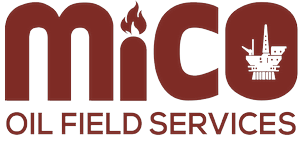Supply Chain serves as bloodline for any business to set its operations and serves as bridge between business and consumers. In the dynamic and complex oil and gas industry, optimizing the supply chain is essential for maintaining efficiency and reducing operational costs. Companies face unique challenges due to volatile markets, fluctuating demand, and the sheer scale of logistics required to move resources. Efficient supply chain strategies can play a pivotal role in ensuring operational continuity, improving safety, and enhancing profitability.
1. Demand Forecasting and Inventory Management
Accurate demand forecasting is vital in the oil and gas sector, given the unpredictable nature of supply and demand. Companies often face the risk of either surplus inventory or stockouts, both of which can have costly consequences. Implementing advanced analytics and predictive modeling helps organizations anticipate market trends and fluctuations. By aligning supply with demand, companies can optimize inventory levels, reduce storage costs, and minimize the likelihood of disruptions.
Inventory management is another critical component. Using real-time tracking systems, businesses can monitor inventory more effectively, reduce waste, and ensure that vital materials and resources are available when needed. Just-in-time (JIT) inventory systems, while beneficial, need to be balanced with sufficient buffer stocks, especially in an industry where downtime can lead to significant financial losses.
2. Supplier Relationship Management
Strong relationships with suppliers are key to maintaining a smooth flow of materials and resources. Oil and gas companies should focus on building long-term partnerships with trusted suppliers who can deliver consistently, even under tight deadlines. This involves transparent communication, negotiated contracts that account for market volatility, and shared risk management strategies.
In addition to these factors, collaborating with suppliers on sustainability initiatives can further optimize the supply chain. By adopting eco-friendly practices in procurement and distribution, companies can enhance their reputation while potentially reducing costs through energy-efficient logistics.
3. Logistics and Transportation Optimization

Transportation in the oil and gas sector involves moving massive quantities of materials, often across international borders. Optimizing transportation routes, utilizing multimodal transportation methods (such as pipelines, trucks, and ships), and implementing route-planning technologies can significantly improve efficiency. Furthermore, investing in digital technologies, like GPS tracking and blockchain for supply chain transparency, enables companies to optimize delivery schedules, reduce fuel consumption, and enhance safety.
Collaborating with third-party logistics (3PL) providers is also a common strategy to offload some of the complexities of logistics management. This allows oil and gas companies to focus on their core operations while 3PLs ensure timely and cost-effective delivery of resources.
4. Integrated Technology and Automation in Supply Chain
Technology is a game changer in optimizing supply chains. By leveraging automation, companies can streamline operations, reduce human error, and increase speed. Enterprise Resource Planning (ERP) systems help integrate various functions such as procurement, logistics, and inventory management into a single platform, offering a holistic view of the supply chain.
Additionally, advancements like the Internet of Things (IoT) enable companies to gain real-time visibility into supply chain operations. IoT devices can monitor the condition of transported goods, track shipments, and even predict maintenance needs for critical equipment.
Blockchain technology is also gaining traction in the oil and gas sector for its potential to enhance supply chain transparency and security. By creating immutable records of transactions, blockchain can prevent fraud and ensure compliance with regulatory standards.
5. Risk Mitigation and Resilience Planning in Supply Chain
Supply chain disruptions are a constant threat in the oil and gas industry, whether from geopolitical tensions, natural disasters, or logistical failures. A resilient supply chain must be able to respond quickly and effectively to such disruptions.
Risk mitigation strategies involve diversifying supplier bases, developing contingency plans, and maintaining emergency stockpiles. Companies should also consider insuring critical assets to protect themselves from financial losses due to unforeseen events.
Additionally, scenario planning allows organizations to model potential risks and evaluate how different strategies would play out under various circumstances. This enables quicker decision-making in times of crisis, reducing downtime and financial impact.
6. Sustainability and Environmental Responsibility
Sustainability is increasingly becoming a priority in supply chain management. Oil and gas companies are under pressure to reduce their carbon footprints and adopt greener practices. This includes optimizing transportation routes to minimize fuel consumption, reducing emissions through energy-efficient logistics, and investing in renewable energy sources for operations.
Integrating sustainability into the supply chain not only benefits the environment but also enhances corporate social responsibility (CSR) profiles, potentially attracting more investors and clients. Moreover, environmentally responsible practices can lead to cost savings in the long term, especially as governments introduce stricter regulations on carbon emissions.
7. Supply Chain Collaborative Management

Collaboration across the supply chain is essential for optimizing operations. Oil and gas companies often rely on a network of partners, including suppliers, logistics providers, and technology vendors. A collaborative approach involves sharing information, aligning goals, and working together to address common challenges.
Implementing supply chain integration tools that allow real-time data sharing between partners can lead to better coordination, reduced lead times, and improved overall efficiency. Joint ventures, particularly in logistics and procurement, can further reduce costs and risks while enhancing operational capabilities.
Discussion
The oil and gas industry faces unique challenges that require tailored supply chain strategies. From demand forecasting to risk mitigation, the effectiveness of the supply chain directly impacts operational efficiency, profitability, and sustainability. Companies like MICO, based in Oman, have demonstrated the importance of seamless supply chain management by offering integrated business and management services that enhance operational efficiency in the oil and gas sector.
Technological advancements, collaboration, and sustainability efforts are key drivers of a more resilient and optimized supply chain. Moving forward, companies must continue to invest in innovative solutions, diversify their supplier bases, and maintain flexibility in their operations to navigate an increasingly complex and volatile market landscape.









